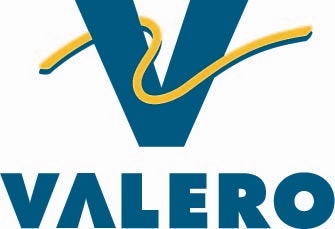North American midstream growth is removing transportation bottlenecks for crude oil, and North American refineries have to face the music. The construction of pipelines and increase in rail capacity are starting to reduce some inventories. These factors coupled with weak European demand for Brent crude oil have caused the WTI-Brent spread to fall. Refineries have been able to make fat profits by refining cheap WTI crude oil and exporting it to the more expensive international markets, but now investors should be ready to discount some refiners.
VLO Total Return Price data by YCharts
Valero Energy Corporation (NYSE:VLO) is one of the largest U.S. refiners and it is dealing with a number of positive and negative catalysts. On the negative side, the decline of the WTI-Brent spread will impact its exportation of distilled products. On the positive side, by using a natural gas to liquids process it will be able to take advantage of high diesel prices and low natural gas prices.
Over the next couple years Valero Energy Corporation (NYSE:VLO) is bringing online a number of new hydrocrackers to help boost its bottom line. Its new hydrocracker St. Charles is estimated to come online at the end of the second quarter, 2013. It has a number of smaller expansion products that will come online between 2014 and 2015.
The firm is expected to earn $5.40 per share (EPS) in 2013. With the falling WTI-Brent spread, its estimated EPS has come down from earlier estimates of $5.59. Regardless, Valero Energy Corporation (NYSE:VLO) is trading at a cheap forward price to earnings (P/E) ratio around 7.5. At these numbers investors can pick up a 2% yield with a total debt to equity ratio of 0.37 and a reasonable margin of safety.
Phillips 66 (NYSE:PSX) has a number of refineries from Malaysia to Germany. Right now, its widely diversified operations are a disadvantage as dedicated U.S. refiners have easier access to discounted Bakken and Canadian crude. The company is trying to completely remove Brent crude from its refinery operations, but this will be a process that occurs over a number of years.
With more pipelines coming online in the U.S., the WTI-Brent spread is expected to fall further. Accordingly, Phillips 66 (NYSE:PSX)’s EPS is expected to fall from $8.16 in 2013 to $7.45 in 2014. The company enjoys a fat return on investment (ROI) of 19.6%, but it also trades at a relatively high 2013 forward P/E ratio around 8.1 and a 2014 forward P/E around 8.9.
With a market cap of $2.7 billion Western Refining, Inc. (NYSE:WNR) is a fly on the wall compared to Valero Energy Corporation (NYSE:VLO) or Phillips 66 (NYSE:PSX). Western Refining owns two refineries, one near the New Mexico-Mexico border and another near El Paso, Texas. In the current environment of the declining WTI-Brent spread, Western Refining, Inc. (NYSE:WNR) has a distinct advantage as its small size means that it is heavily exposed to regional U.S. spreads instead of the WTI-Brent spread. The company’s location close to the Permian and San Juan basins gives it easy access to fresh oil supplies.
With a total debt to equity ratio of 0.78, Western Refining, Inc. (NYSE:WNR) carries more debt than its larger cousins. Thankfully, its ROI of 36.6% and profit margin of 5.7% are healthy enough for it to easily make its debt payments. It trades at 2013 forward P/E around 7.2 and is one of the better deals among small refineries.
Alon USA Energy, Inc. (NYSE:ALJ) has interests in a number of refineries in Texas and California. Like Western Refining, its Texan refineries are in a great position to take advantage of cheap Texan oil. The downside is that Alon’s Californian refineries decrease its Texan advantage. Alon is the largest 7-Eleven licensee in the U.S. with almost 300 retail stores. It has been aggressively paying down debt but it still has a total debt to equity ratio of 0.96.
Alon USA Energy, Inc. (NYSE:ALJ) is best left for another day. Its California refineries expose the company to some of the most stringent regulations within the nation. Its profit margin of 2.1% is not spectacular. Also, the company trades at a 2014 P/E ratio of 11.3 that is above many of its competitors.
Conclusion
The North American energy market is working through its midstream transportation constraints and the shrinking WTI-Brent spread is impacting refineries. Phillips 66 (NYSE:PSX) will get stuck with the short end of the stick as its earnings are expected to fall from 2013 to 2014. Alon is best left for another day as it has a high debt load and trades at a relatively high valuation.
Western Refining is a convincing investment, but Valero Energy Corporation (NYSE:VLO) looks like a better deal. Western Refining is close to cheap Texan oil, but it is also constrained by its small size. Valero has a number of new hydrocracking projects that are coming online that will give the firm a strong boost.
Joshua Bondy has no position in any stocks mentioned. The Motley Fool owns shares of Western Refining. Joshua is a member of The Motley Fool Blog Network — entries represent the personal opinion of the blogger and are not formally edited.
The article The Brent-WTI Spread Is Falling; Are Refineries Overvalued? originally appeared on Fool.com and is written by Joshua Bondy.
Copyright © 1995 – 2013 The Motley Fool, LLC. All rights reserved. The Motley Fool has a disclosure policy.



